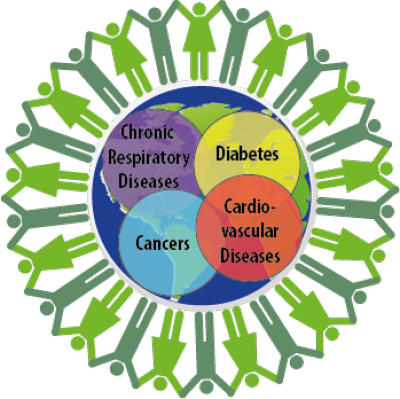LENScience
The Non-Communicable Disease Epidemic

Non-communicable diseases (NCDs) are the leading cause of preventable ill health, related disability and premature death in the world today.
NCDs are chronic diseases that cannot pass from one person to another. They develop slowly over time, and generally progress slowly.
The major groups of NCDs are:
- cardiovascular diseases
- non-hereditory cancers
- chronic respiratory disease
- diabetes
- mental health conditions
These diseases account for 63% of deaths world-wide, and 75% of deaths in the Western Pacific region. Their impact is disproportionately high in lower socio-economic groups and low- and middle-income countries.
An estimated 80% of the premature deaths caused by heart disease, stroke and diabetes could be postponed through changes to behaviours throughout the life course surrounding the four major causative risk factors of tobacco use, unhealthy diet, physical inactivity and harmful use of alcohol.
NCDs are associated with a high level of social and economic burden. This includes:
- reduced quality of life (often for many years)
- reduced productivity - affecting economic and social wellbeing for the individual, their family and community
- increased burden of health care for the individual, the family and society
Teacher PLD e-module
This PLD e-module provides an overview of:
- Noncommunicable diseases (NCDs)
- Issues and impacts
- Links between early-life environmental exposures and later-life NCD risk
This overview is designed to support teachers who are using the NCD epidemic as a context for learning in their classrooms.
Click here to access the module.
Information for Teachers
-
What are Non-Communicable Diseases?
Non-Communicable Diseases: An overview for teachers
-
NCD Risk Factors
Modifiable NCD risk factors: An overview for teachers



